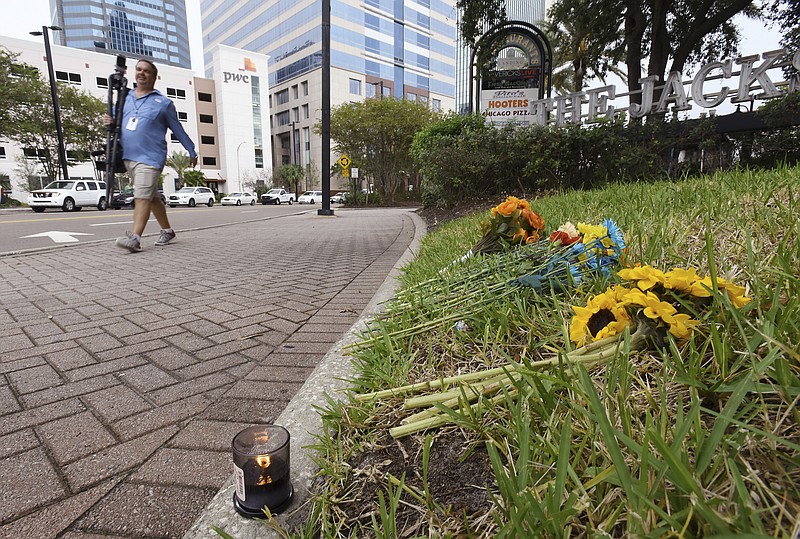BALTIMORE (AP) — The young man who opened fire at a Florida video game tournament had shown abundant signs he was struggling with a mental disorder: He was prescribed an anti-psychotic drug as an adolescent and had been hospitalized at least twice for mental illness.
Yet David Katz landed at the foggy intersection of America’s mental health and legal systems when it came to buying the two handguns that police say he carried during the attack, which killed two people and wounded 10 others during the “Madden NFL 19” competition in Jacksonville. The rampage ended when the 24-year-old Baltimore man fatally shot himself.
Experts said the gunman’s history of mental illness apparently would not have stopped him from buying guns in Maryland, where buyers cannot pass a background check if they were either involuntarily committed for any period of time or voluntarily admitted to a psychiatric facility for at least 30 consecutive days.
Court papers filed in his parent’s bitter divorce do not clearly indicate whether Katz was hospitalized voluntarily or involuntarily, and the two hospitalizations described in the documents were both shorter than 30 days.
In addition, Katz’s hospitalizations may have occurred before the Maryland General Assembly revamped the state’s firearms laws following the 2007 mass shooting at Virginia Tech.
“It appears that these disqualifications did not apply to David Katz,” said Daniel Webster, director of the Johns Hopkins Center for Gun Policy and Research.
The Jacksonville shooting is just the latest U.S. case to illustrate the complexities of keeping dangerously unstable people from purchasing guns.
A Maryland legislator said the attack highlights the need to review laws governing the length of time someone can be voluntarily admitted to a psychiatric facility and still pass a background check for firearms.
“That clearly is an area in need of reform,” said Democratic Sen. Robert Zirkin, who chairs a Senate committee that handles gun laws.
Maryland lawmakers will gather in January for their annual 90-day legislative session in Annapolis, where people are still grieving the loss of five people gunned down at a newspaper office earlier this year. The gunman’s attorneys are considering an insanity defense.
Under federal law, people are generally prohibited from acquiring guns if they have ever been involuntarily committed to a psychiatric facility. Nationally, there’s no federal requirement for psychiatric hospitals or courts to report involuntary commitments to the FBI for inclusion in a database used for gun-purchase background checks.
Some states have their own laws. In Maryland, where Katz purchased a 9mm handgun and .45-caliber handgun, state law requires courts to report to the National Instant Criminal Background Check System whenever people are declared mentally incompetent to stand trial or assigned a guardian because they cannot manage their affairs.
In addition, Maryland law requires psychiatric facilities that admit an individual to submit a report to the State Department of Health and Mental Hygiene. As part of the gun-purchase application, Maryland state police require applicants’ written authorization for the state health agency to disclose whether they suffer from a mental disorder, have a history of violent behavior or have been confined for more than 30 consecutive days to a mental health facility.
Maryland state troopers are responsible for investigating gun purchases, but for now they are not talking to avoid interfering with the investigation in Jacksonville, spokesman Greg Shipley said.
Katz’s parents frequently disagreed on how to care for their troubled son, with his father at times claiming his estranged wife was exaggerating symptoms of mental illness. The couple divorced in 2007.
The suspect’s father, Richard Katz, of Baltimore, and his mother, Elizabeth Katz, of Columbia, Maryland, did not respond to phone messages from the Associated Press. Efforts to reach them and other relatives at their homes were also unsuccessful.

